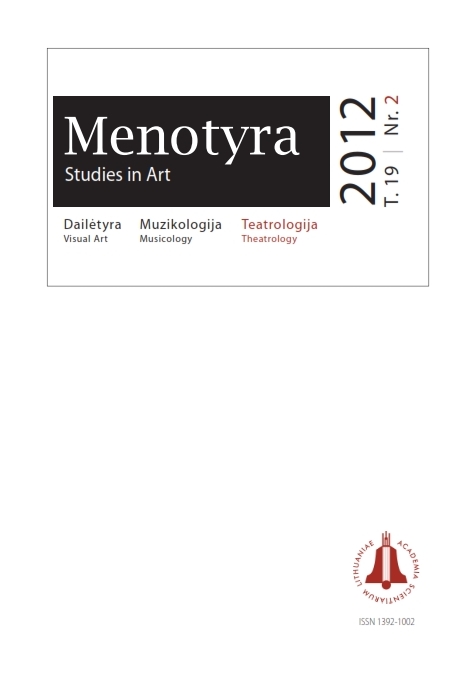(Anti)ideologija: politinio teatro formos šiuolaikinėje scenoje
(Anti) ideology: the forms of political theatre on contemporary stage
Author(s): Rasa VasinauskaitėSubject(s): Theatre, Dance, Performing Arts, Fine Arts / Performing Arts
Published by: Lietuvos mokslų akademijos leidykla
Keywords: epic theatre; ideology; modernism; performance; political theatre; post-dramatic theatre; post-modernism
Summary/Abstract: The article analyses the concept of political theatre and its development in the 20th and 21st centuries. Appealing to the standpoint of Hanna Arendt towards politics and art, the article accentuates the concept of theatre as a public space for the development of sociality of individuals-citizens and treats the performance as an aesthetical and political activity of the theatre, which constitutes the values (determination) of the audience. Analyzing the forms of political theatre and art of the 20th century, the author differentiates between transgression typical of the underground modernism of the beginning of the 20th century and resistance of the postmodern art of the end of the 20th century. Analyzing the theory of Bertold Brecht, the most influential representative of the political theatre of the first half of the 20th century, the author points the aspects of epic / dialectic performance, distance performance and critical reception. Discussing the works of the politically engaged American company “Living Theatre”, the performance-like form of the spectacle is accentuated. Appealing to the viewpoint towards political theatre developed by Hal Foster, Pegg y Phelan, Hans-Thies Lehmann, Gilles Deleuze and Félix Guattari, the author distinguishes aesthetical resistance, which is characteristic of the performance art and performative forms of theatre. Having in mind political and socially-critical performances by Lithuanian theatre directors Oskaras Koršunovas and Jonas Vaitkus produced in 2010–2011, the author states that a political aspect of the contemporary performance is based not on its theme, but on its aesthetics, which becomes the criticism of general norms, social and cultural hierarchisation and cultural ideolog y. This criticism reflects the responsibility of the theatre towards “a small society”, which in the times of neoliberal politics and post-industrial economics qualifies theatre as the main space of cognition of reality and creation of human identity.
Journal: Menotyra
- Issue Year: 19/2012
- Issue No: 2
- Page Range: 122-131
- Page Count: 10
- Language: Lithuanian

